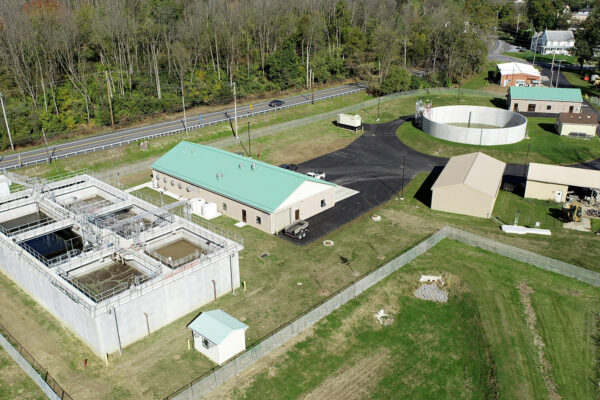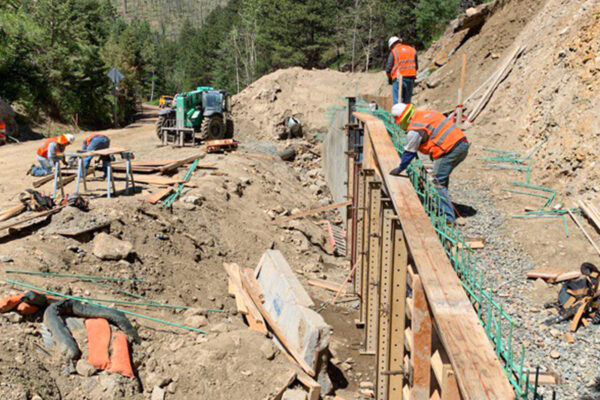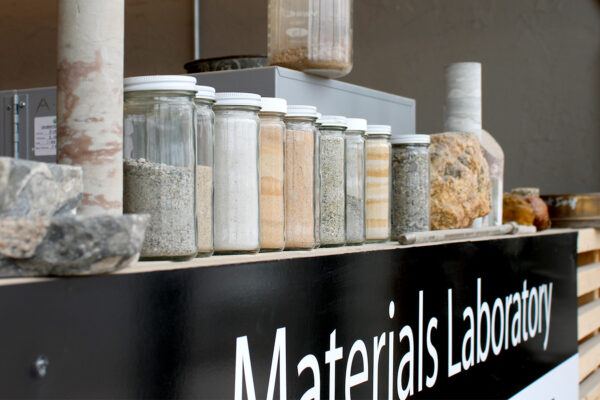Clean Production of Carbon Black Expands to Nebraska
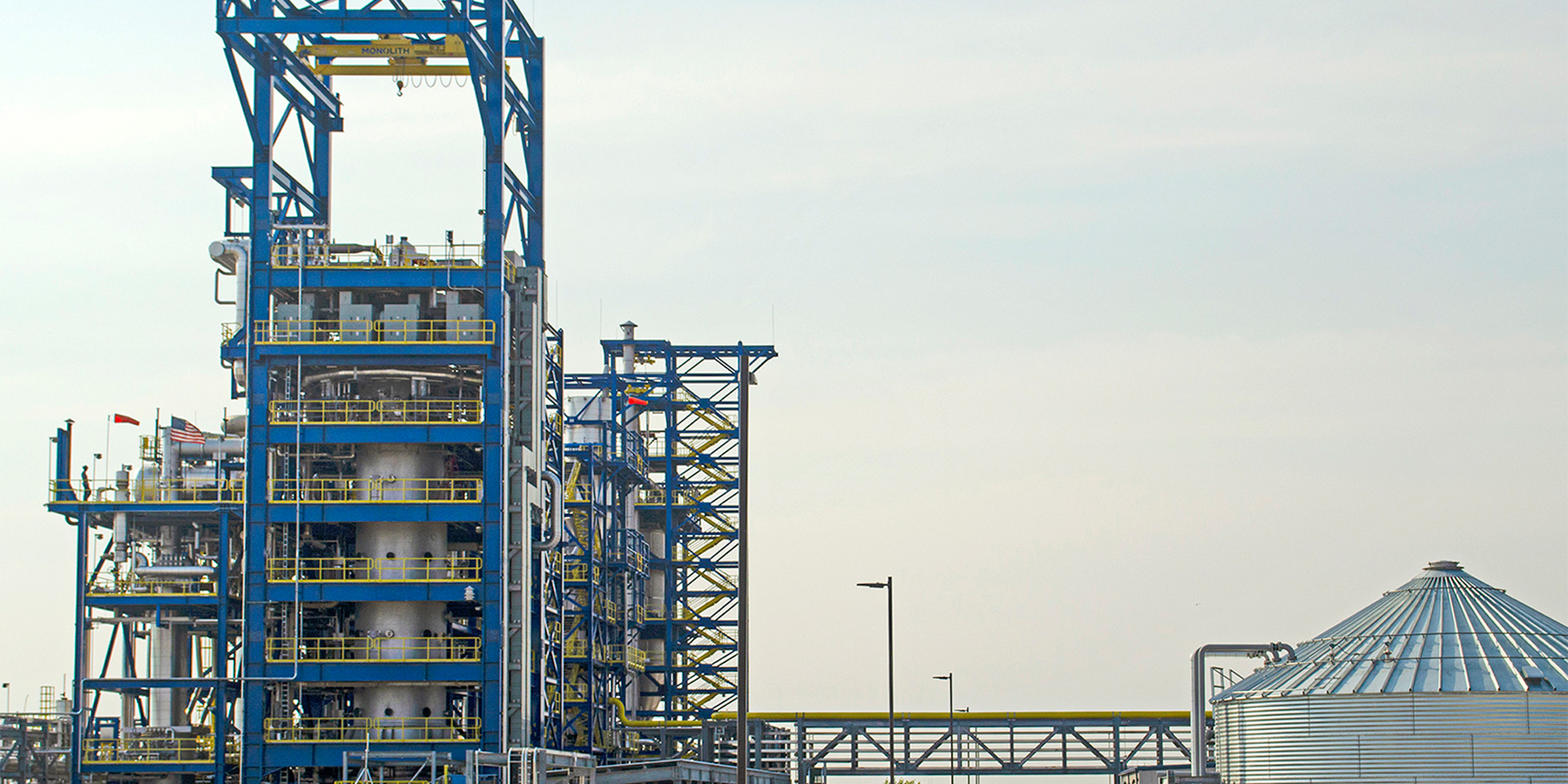
HALLAM, NE — For the last 30 years, the production of carbon black has shifted overseas. That changed in 2012 when Monolith Materials, Inc. opened a demonstration plant in California, where a new clean production process was put to the test. Today, Monolith’s U.S. expansion continues as they prepare to open Phase 1 of the brand-new Olive Creek Plant in Hallam, Nebraska—a 305,000-square-foot facility spanning 50 acres.
Civil/site design work for the plant began in 2015. At that time, Benesch had partnered with Monolith to provide rail design and coordination services for a future rail delivery system at the plant.
“Benesch designed 2,400 feet of track for the new facility,” explained Benesch Project Manager Frank Doland, PE. “The track will facilitate an overhead loading structure, which can accommodate 36 freight cars, inbound and outbound.”
The project was challenging from a grading and perspective, as the entire site needed to be excavated approximately 15 feet to accommodate new rail service. As Benesch navigated the future plant’s site constraints, the firm’s role expanded to include survey, drainage and construction staking, among other civil/site design services.
“Over time we built a strong partnership with Monolith as we provided civil/site design services for this important expansion project,” Doland said. “Our team designed a high-pressure gas line, as well as a process for water collection and treatment that flowed through a storm sewer, lift station network and eventually delivered to an evaporation pond.”
The water collection and treatment system pumps water that would otherwise leave the facility into an evaporation pond where particles can settle, and clean water can evaporate into the atmosphere. The pond is lined with impermeable clay, which blocks any contaminated water from percolating down into the water table.
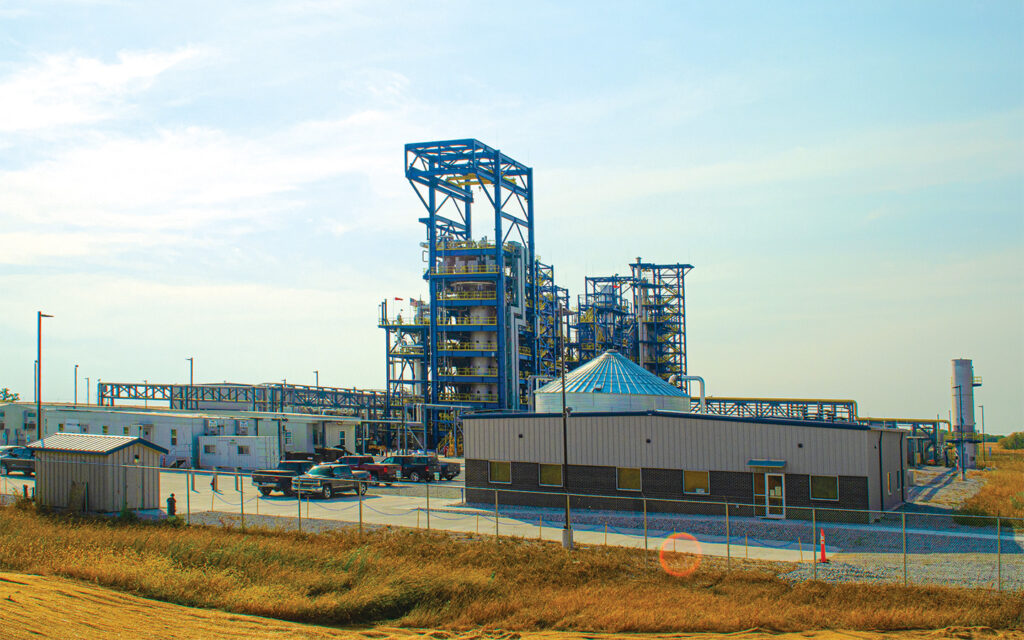
The 305,000-square-foot facility is part of Phase 1 for the new Olive Creek Plant—once Phase 2 is complete, Monolith estimates the plant will reduce carbon emissions by one million tons per year.
Carbon black is a valuable material used in everyday items, such as tires and cell phones, that has traditionally been produced by burning heavy oil, a process that creates a substantial amount of air pollution. At the Olive Creek Plant, Monolith will utilize their innovative production process that directly converts pipeline grade natural gas into carbon black and hydrogen.
Through a partnership with Nebraska Public Power District, the hydrogen byproduct will be used to generate clean power for Nebraskans. Monolith estimates that once fully operational, the Olive Creek Plant will reduce carbon emissions by one million tons per year, roughly the environmental equivalent of taking more than 200,000 cars off the road.
As Phase 1 of the Olive Creek Plant begins production, a second phase for the plant—an expansion which will be three times as large as the first phase—is entering into a five-year development process.

